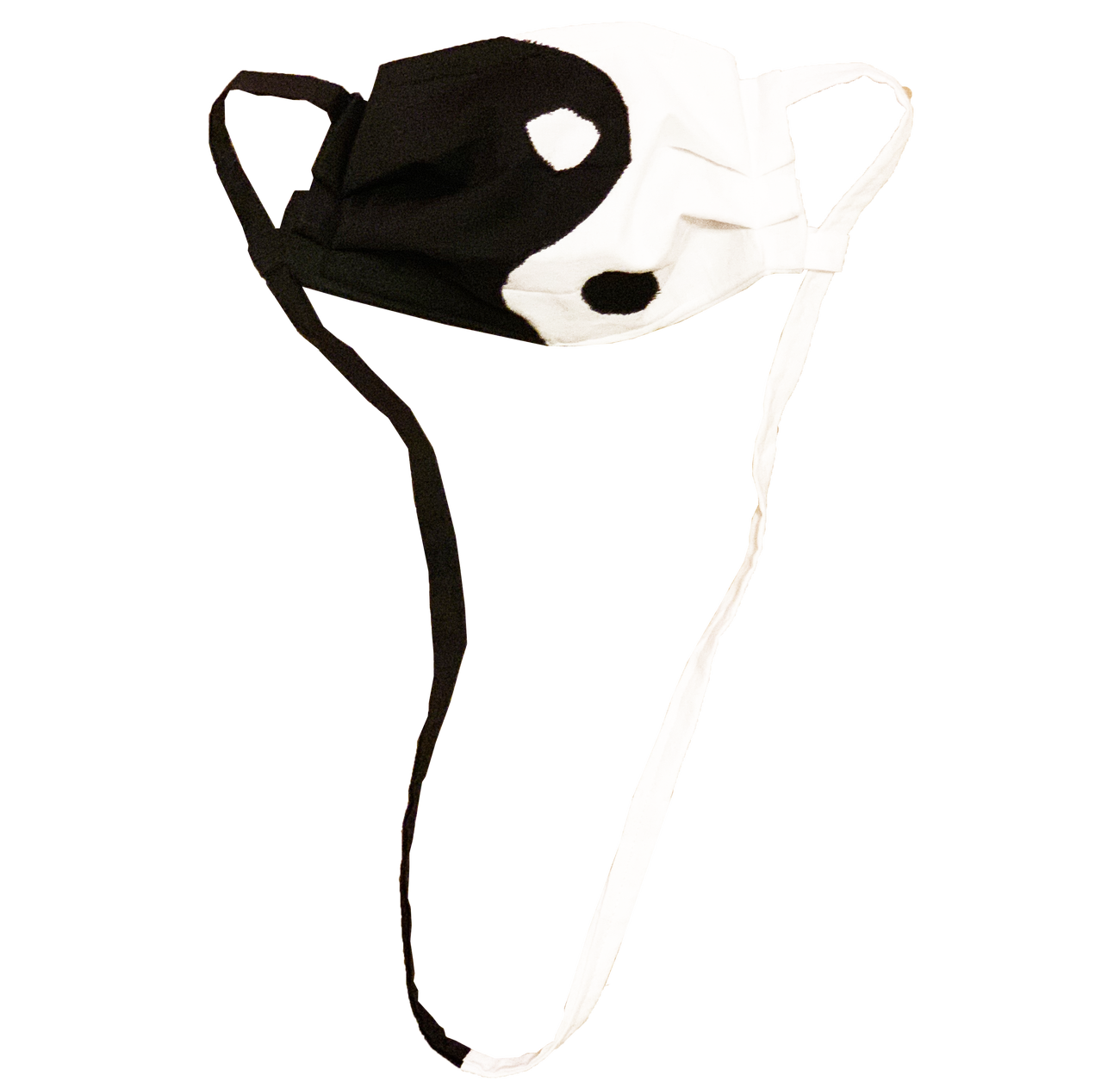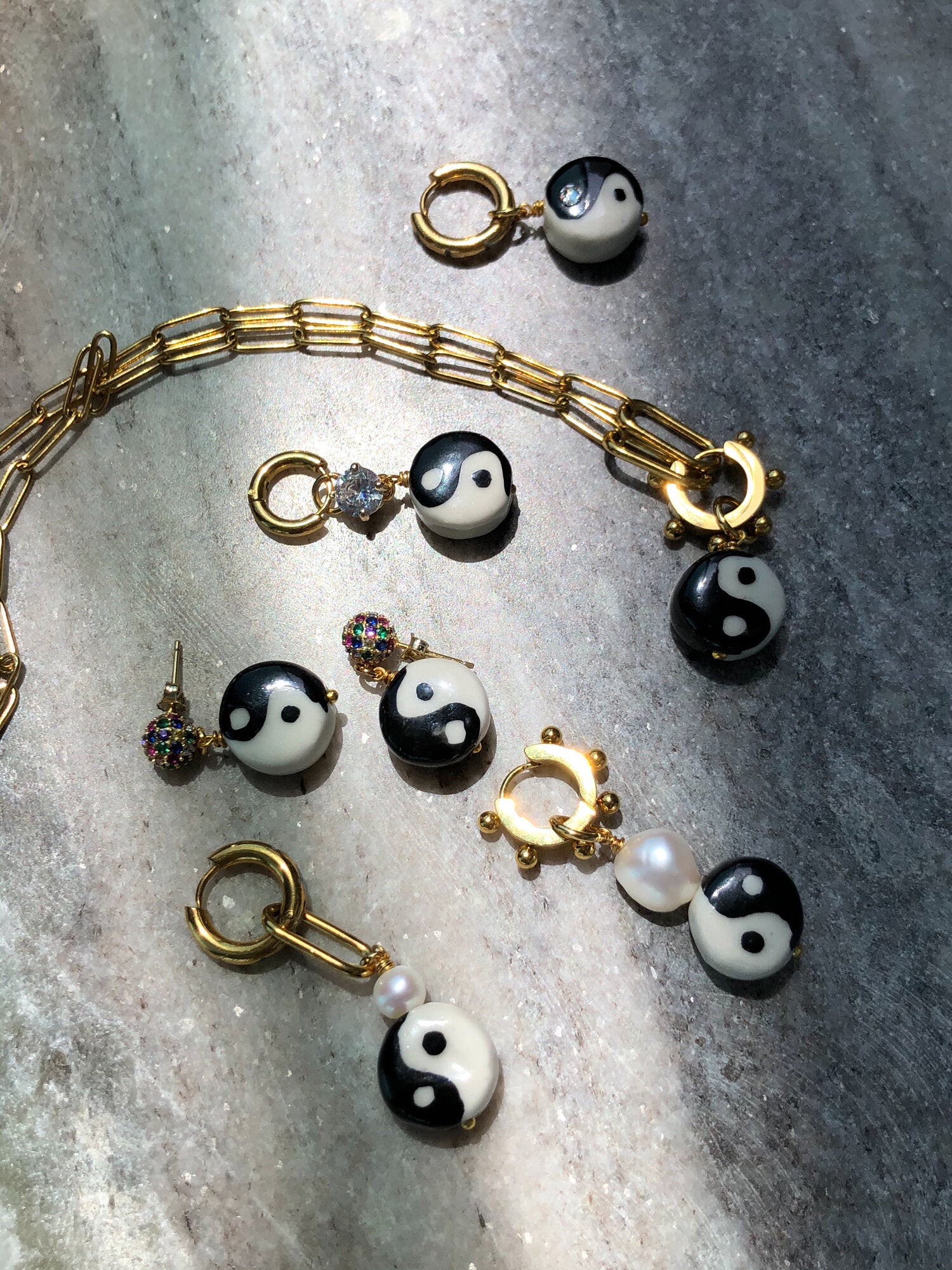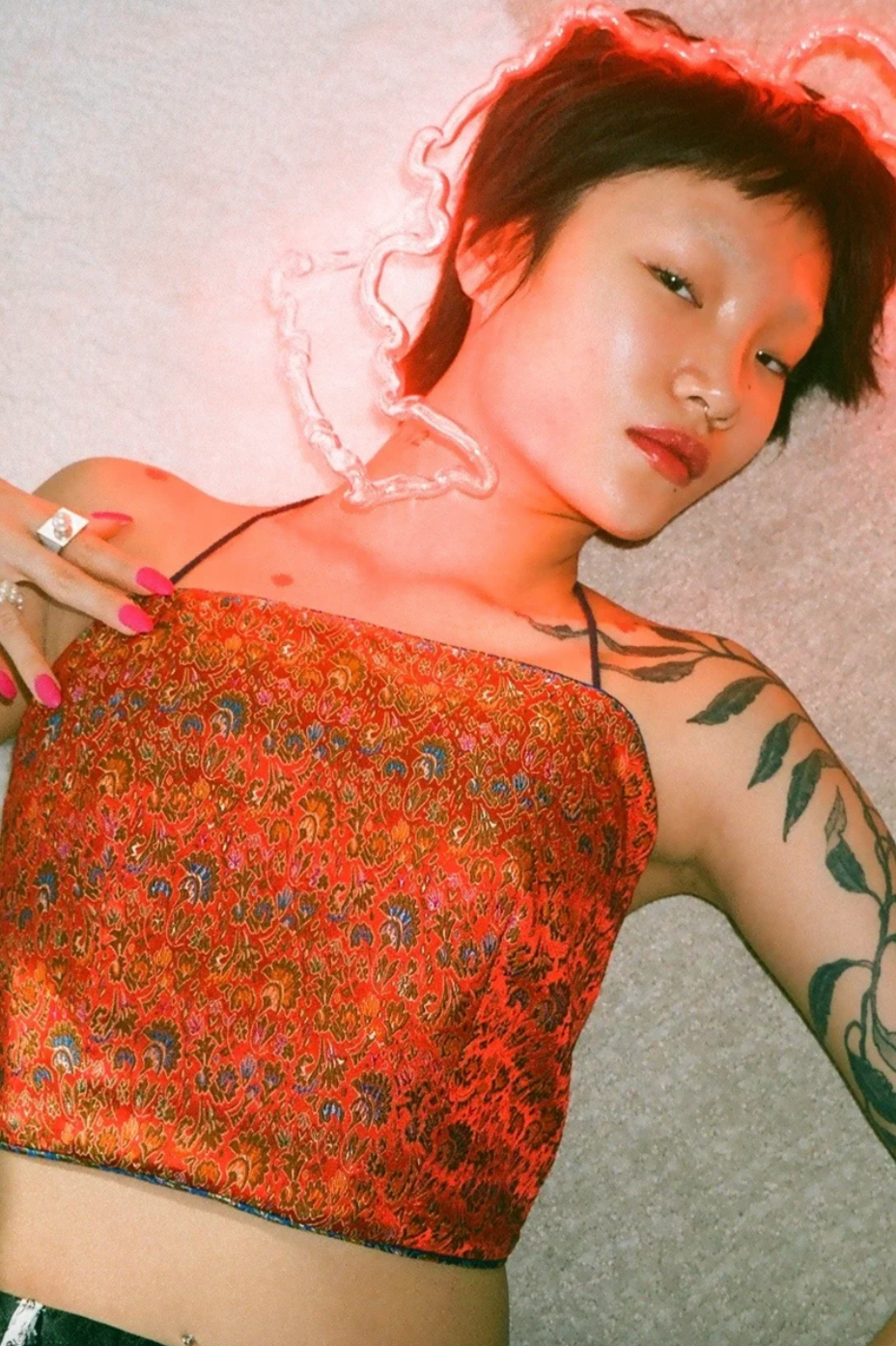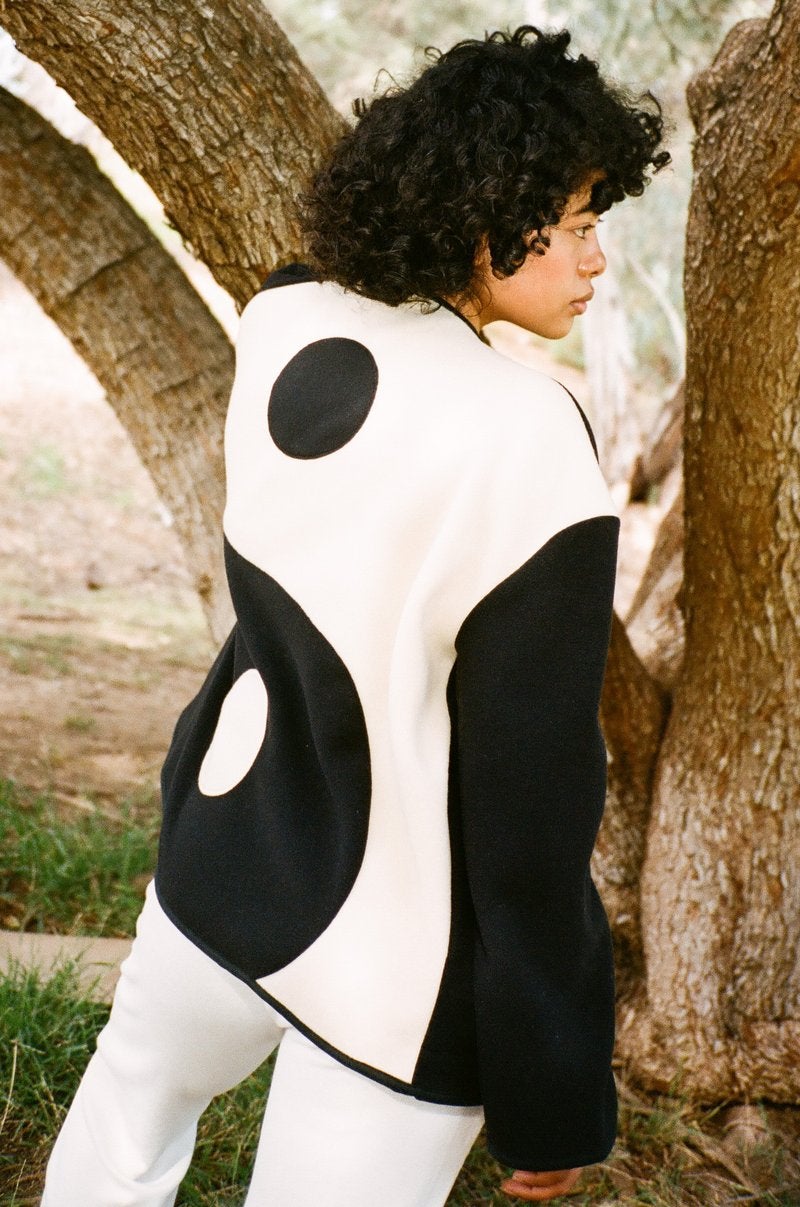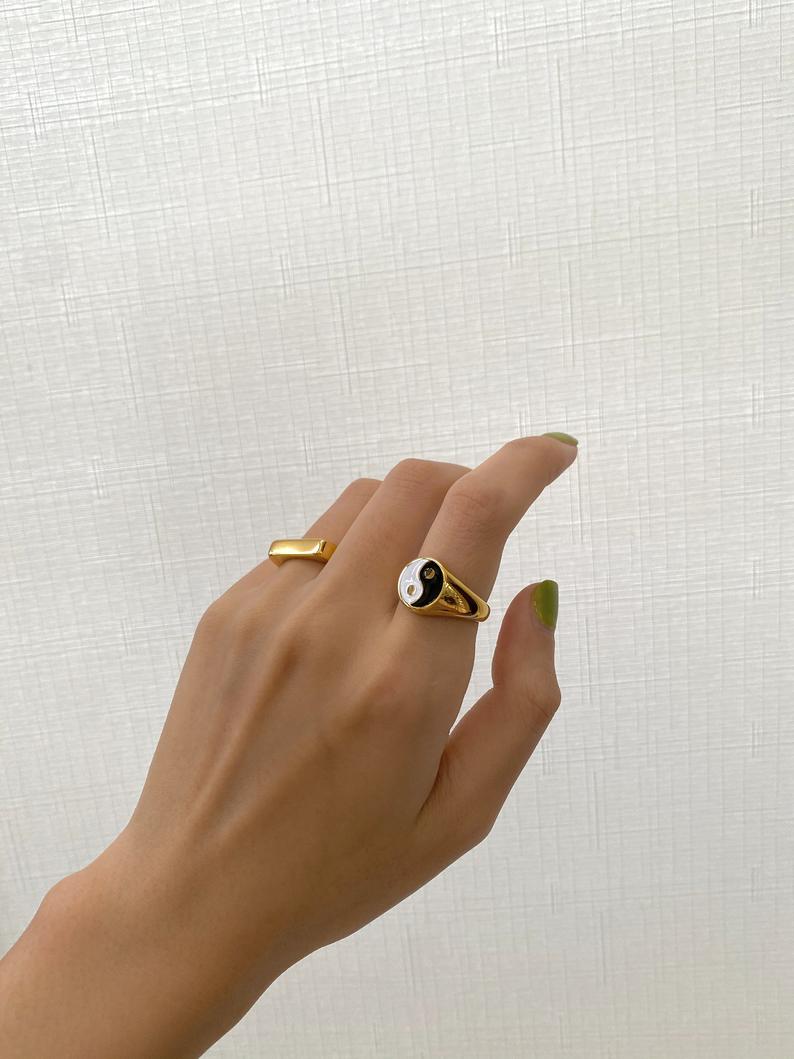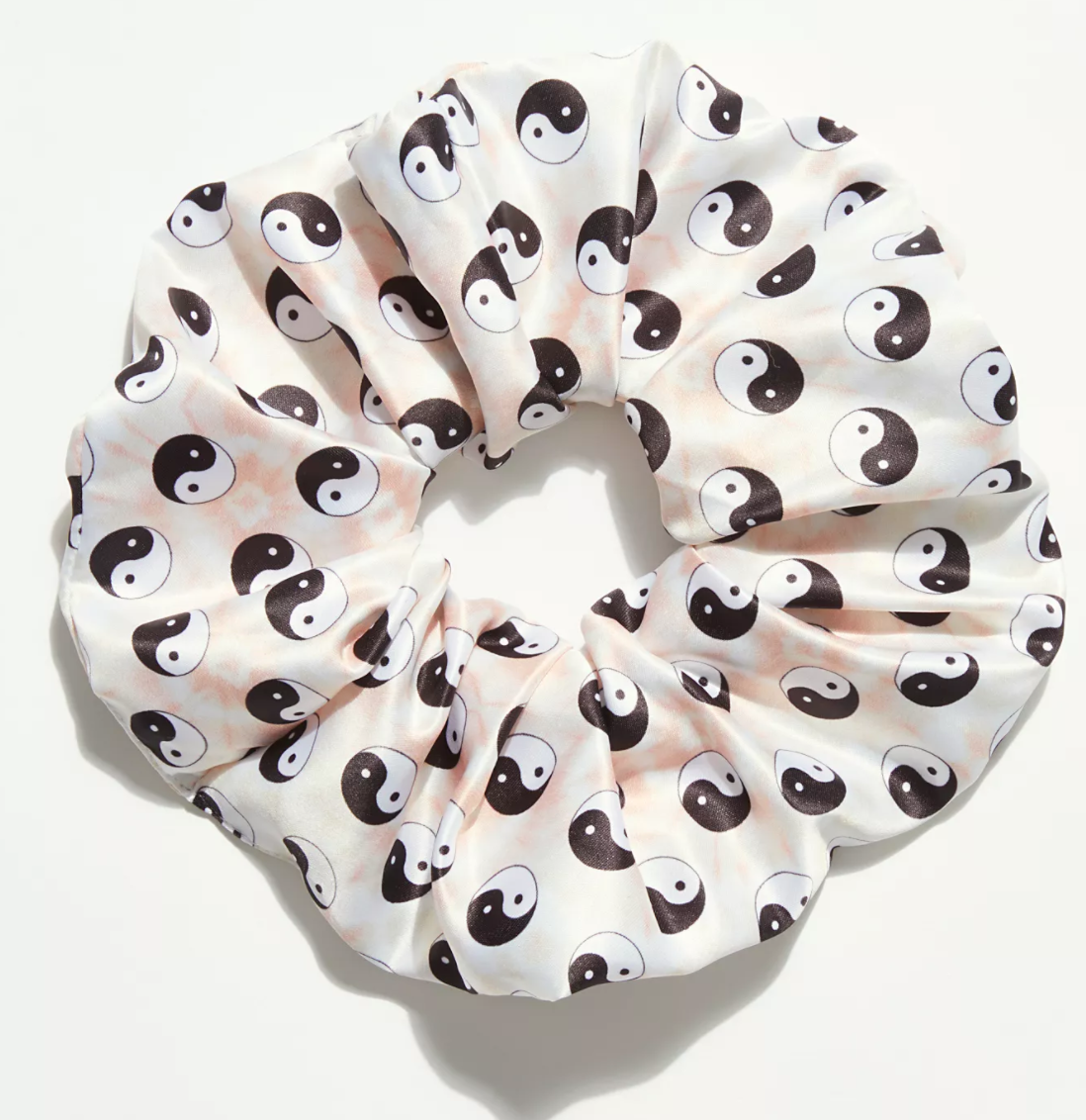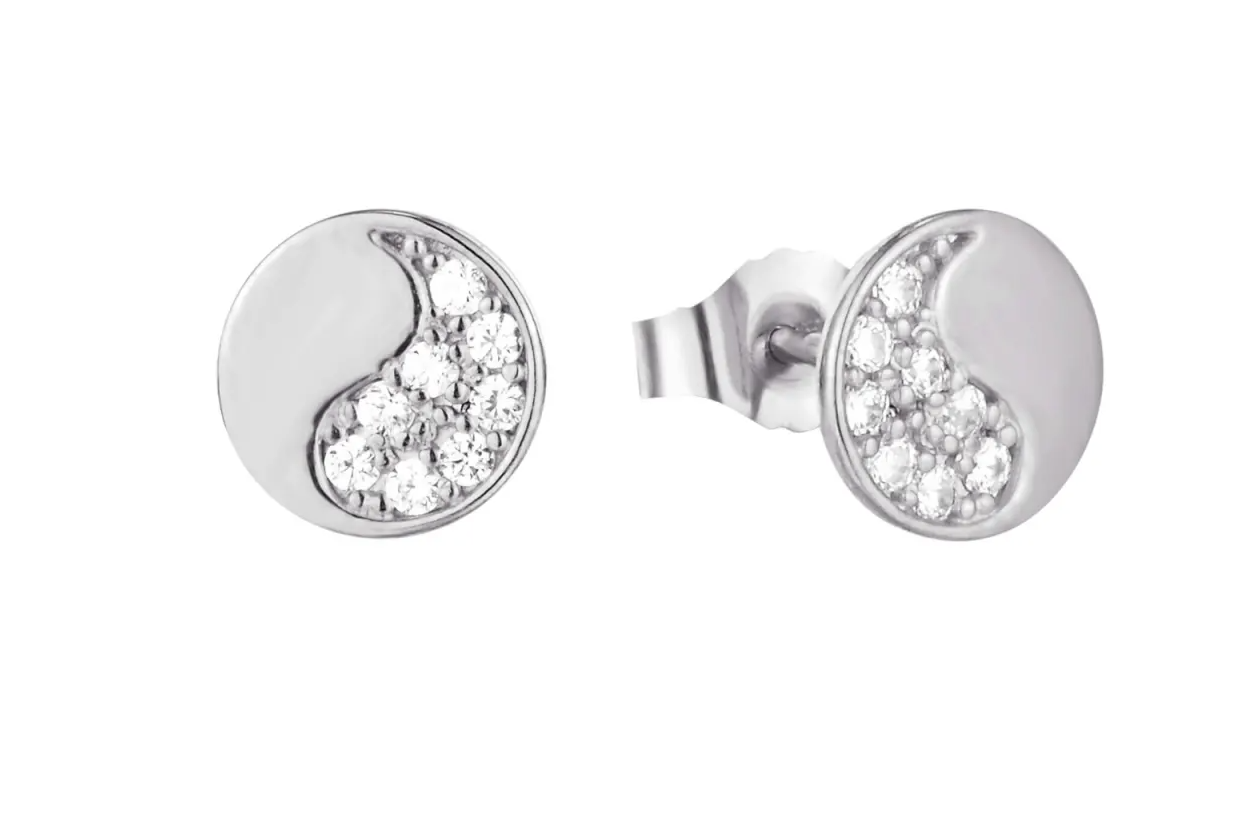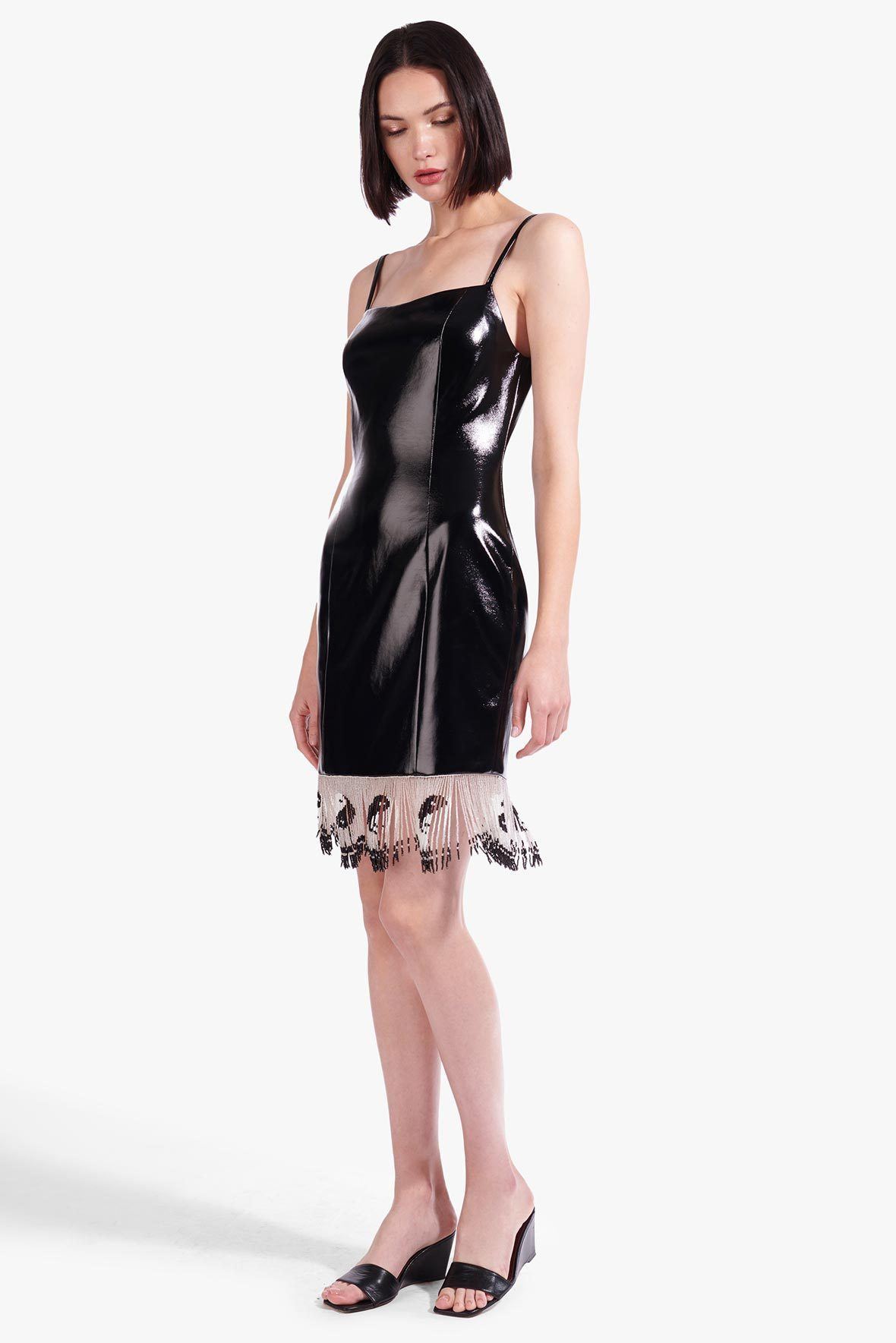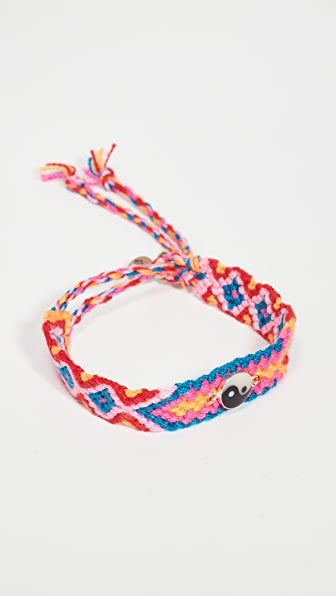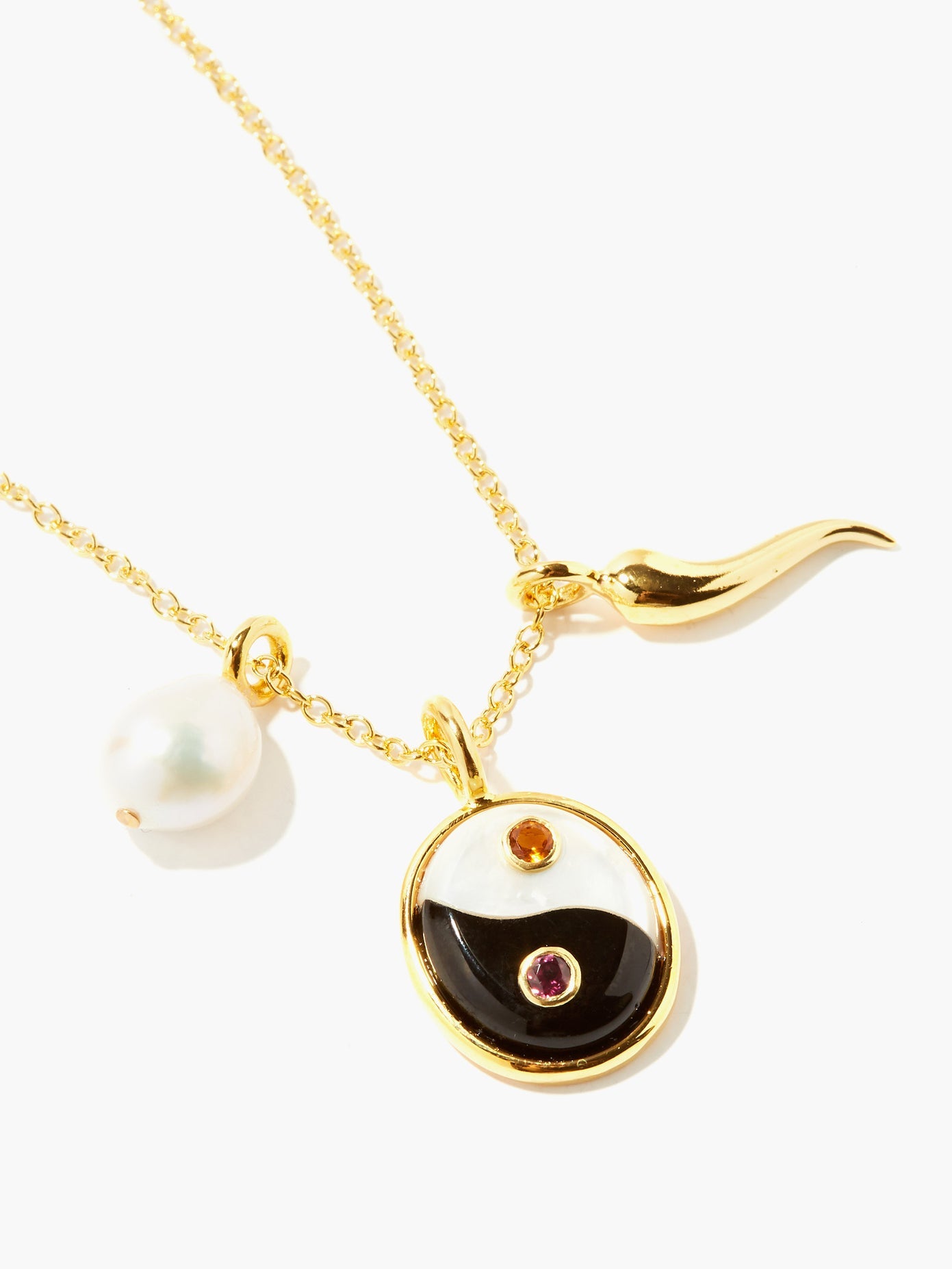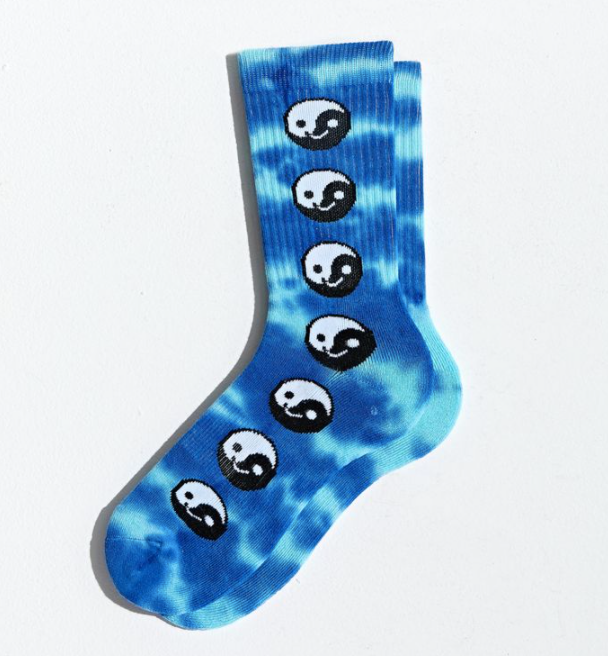"The use of the symbol in jewelry and garments started off as a belief that, based on the implication of Yin and Yang, it will help the wearer balance the good and evil in their lives," says Wang, founder of the contemporary chinoiserie streetwear brand
Dawang. She points to the vibrant, contrasting colors mixed with traditional Chinese fabrics of her Lunar New Year capsule, which launched in January 2020, as an example of the subtle ways this idea of dualism manifests in clothing design. While the Yin-Yang motif itself isn't visible in her garments, its harmonious energy is at the core of the entire collection. More recently, however, the prevalence of this symbol has been less nuanced as it sweeps our social feeds in the form of
manicures and
masks while simultaneously popping up across collections by lust-worthy labels such as
Staud, Gelareh Mizrahi,
Fenty x Puma, and
Balenciaga. Beyond its like-bait potential, the mainstream appeal of this black-and-white badge of balance is very much driven by the ancient principle it represents — one that's been part of Chinese culture since the start of its civilization.







